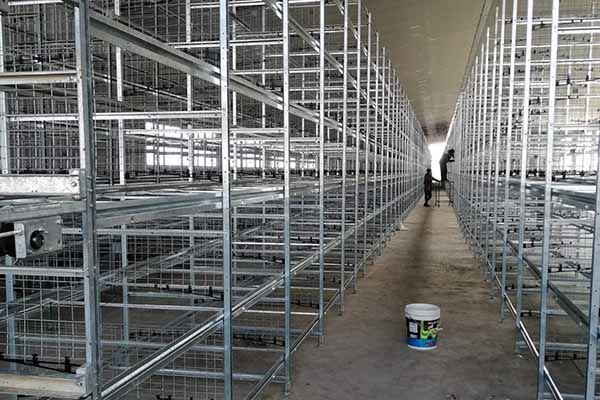Tanzania Chicken Equipment Import: A Comprehensive Guide to Customs Clearance Process
Time : 2025-07-26
As a leading manufacturer of poultry equipment from China, Livi Machinery has been providing high-quality and innovative solutions to the global poultry industry for years. Today, we are here to help you navigate the customs clearance process when importing chicken equipment to Tanzania. In this article, we will cover everything you need to know about the process, from documentation to regulations, ensuring a smooth and hassle-free import experience.
Understanding the Tanzania Chicken Equipment Market
Before diving into the customs clearance process, it’s essential to understand the Tanzania poultry equipment market. Tanzania is a growing market with a rising demand for high-quality poultry equipment. As a result, there are numerous opportunities for manufacturers like Livi Machinery to expand their reach and cater to the needs of local poultry farmers.
Pre-Importation Requirements
1. Product Registration: Before importing poultry equipment to Tanzania, it is crucial to register your product with the Tanzania Food and Drug Authority (TFDA). This process ensures that your equipment meets the local safety and quality standards.
2. Technical Specifications: Provide detailed technical specifications of your poultry equipment to the Tanzania Bureau of Standards (TBS). This information helps in assessing the compatibility and safety of the equipment.
3. Export Certification: Obtain an export certificate from the Chinese authorities. This certificate confirms that your product complies with the regulations of both China and Tanzania.
Documentation for Customs Clearance
1. Commercial Invoice: A commercial invoice is a critical document that details the description, quantity, price, and total value of the goods. It should be issued by the manufacturer or exporter.
2. Bill of Lading: The bill of lading is a document that serves as evidence of the contract of carriage between the shipper and the carrier. It also acts as a receipt of goods delivered to the carrier.
3. Certificate of Origin: This document certifies that the goods are of a particular country of origin. In this case, it should state that the goods are of Chinese origin.
4. Insurance Policy: An insurance policy covering the goods during transit is required. This ensures that you are protected against any loss or damage to the goods during transportation.
5. Product Compliance Certificate: This certificate confirms that the poultry equipment complies with the Tanzania standards and regulations.
Customs Clearance Process
1. Arrival of Goods: Once your goods arrive in Tanzania, they will be cleared by customs. Ensure that all required documents are in order before the goods arrive.
2. Customs Declaration: Prepare a customs declaration form, which includes the details of the goods, such as the description, quantity, value, and country of origin.
3. Payment of Duties and Taxes: Calculate the customs duties and taxes based on the value of the goods and the applicable rates. Pay these amounts to the customs authority.
4. Inspection: The customs authority may conduct an inspection of the goods to ensure compliance with local regulations. If the goods pass the inspection, they will be released.
5. Release of Goods: Once all duties and taxes are paid, and the goods pass the inspection, they will be released to the importer.
Post-Importation Requirements
1. Installation and Training: Ensure that the poultry equipment is installed correctly and that the local staff is adequately trained to operate the equipment.
2. Maintenance and Support: Provide ongoing maintenance and technical support to ensure the longevity and efficiency of the equipment.
Conclusion
Importing chicken equipment to Tanzania can be a complex process, but with the right guidance and preparation, it can be a smooth and successful venture. As a trusted manufacturer of poultry equipment, Livi Machinery is committed to helping you navigate the customs clearance process and ensuring a seamless import experience.
For more information on importing poultry equipment to Tanzania, contact our team of experts today.












